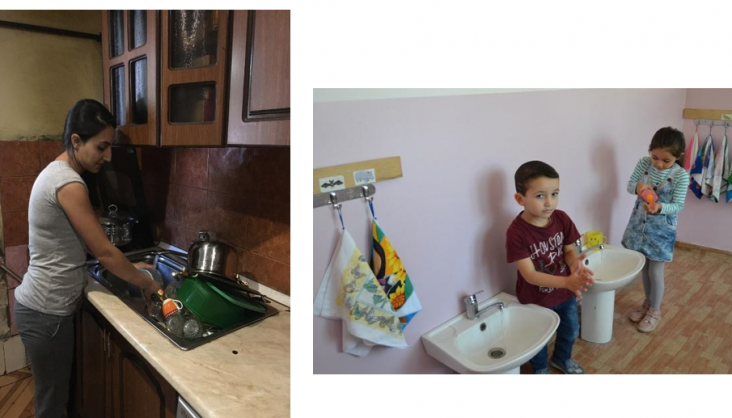Speeches Shim

“You can’t even compare it with the past,” Lena Yegoryan, a housewife in the community remarks, “before, we had water just for a couple of hours every other day.” Such were the realities of life in Aratashen, and in 30 other communities in the valley that do not have reliable or clean drinking or irrigation water.
For decades, they have relied on pumped groundwater from the resource-rich underground aquifer. But poor infrastructure maintenance, unregulated pumping of groundwater by nearby fish-farms, and insufficient management and oversight of the system led to inconsistent water access. “It is such a big relief for us to have water all day round,” says Nvard Khachartyan, Director of a kindergarten in Aratashen, a village in Armenia’s Ararat Valley. “You can only imagine how much water the kindergarten uses for cooking, washing and cleaning on a daily basis. In the past, we used to store water in big buckets [in order to] cover our needs,” she explains.
With support from USAID’s Advanced Science and Partnerships for Integrated Resource Development (ASPIRED) project, nearly all of Aratashen’s 3,200 residents now have access to clean, potable water 24 hours a day. Through their cooperation with ASPIRED, the community identified the primary barriers to water access -- poor infrastructure and insufficient regulation -- and sought solutions to address them. ASPIRED then supported the community to install a new pumping station, replace 10 km of corroded piping and introduce a new consumption-based metering system.
Since June 2019, Aratashen village has successfully managed the new water supply system and as a result, has reduced the amount spent on electricity and pumping dramatically. Additionally, due to improved pipes and infrastructure, the system is helping stem the loss of groundwater in the valley, pumping half the amount of groundwater as in previous years, when a majority of the water was lost through corroded pipes. Artashen’s mayor explained that as a result of the system changes, they have saved almost $10,000 USD for the community budget. The village will use the savings to install an additional 1,800 meters of new pipes that will deliver water to the remaining three streets (47 houses households) that do not have round-the-clock water at home.
ASPIRED engaged the community in the process to reinforce a sense of ownership; now, community members are eager to stay engaged to maintain the new infrastructure. They are also willing to pay the necessary fees to ensure they continue to have water 24 hours a day. “Of course, we are ready to pay now since water is always available,” Lena says, echoing sentiments of residents of Aratashen.

Comment
Make a general inquiry or suggest an improvement.